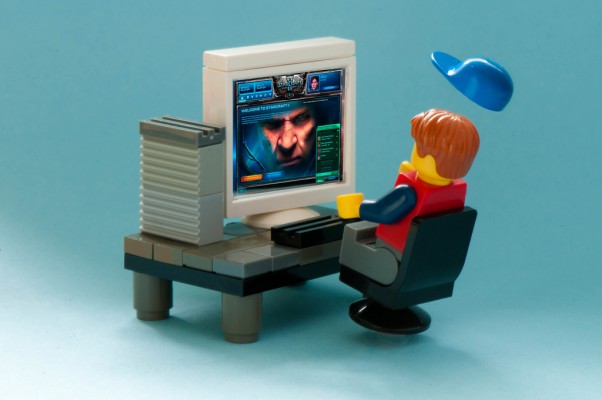 You probably have a thousand questions spinning around in your head making you feel a little nauseated, unsure and excited all at the same time.
You probably have a thousand questions spinning around in your head making you feel a little nauseated, unsure and excited all at the same time.
It’s so hard to move forward when you’re stuck in that kinda-queasy stage of “Let’s do this!” So, I figured, the fastest way to help you through it is to, um, you know, answer them. Your most common questions, answered. Right here. All up front like.
Plus, if you do decide to work with me as you build your business, this saves both of us a lot of time, saves me a bunch of repetition and saves you quite a bit of money. So, it’s a trifecta of win!
The 9 micro-business questions everyone seems to have
[jaccordion size=”xsmall” theme=”smoothness” active=”0″] What the heck is a micro-business? And why do they matter?:: Specifically, a micro-business is any organization (profit or non-profit) that has less than 5 employees and can start-up with less than a $10,000 investment.
Specifically, a micro-business is any organization (profit or non-profit) that has less than 5 employees and can start-up with less than a $10,000 investment.
That means if you think of yourself as self-employed or a freelancer, professional service provider, independent business owner, etc, you are a micro-entrepreneur. The majority of mom & pops, boutique shops, artists and home-based businesses are micro-enterprises too.
Most micro-entrepreneurs start their businesses to allow them to enjoy a lifestyle they couldn’t have with a traditional job or career.
Why do they matter?
By bringing people home, micro-business has the power to heal our families, our economy, our environment and our sense of individualism, which is vital to our ability to keep innovating and creating and evolving.
Micro-businesses have proven to be more sustainable and have lower failure rates than traditional small businesses. Beyond that, they’ve replaced countless corporate incomes and provide valuable jobs for lifelong, loyal employees.
Micro-businesses have fed families and given parents the choice to stay home. They’re nimble and flexible, lending to more creative and innovative ideas. Not to mention therapist dollars saved, divorces avoided, gas saved, miles not driven, what’s dry cleaning (?) and of course, higher quality services and products offered with genuine, loving customer service.[jacc/] Am I cut out to be a micro-entrepreneur?::
My first reaction to this question is to go into mama-bear mode and say,
Don’t ever let anyone tell you you’re not cut out for something you want.
But…I’m guessing you’re looking for a more specific answer. So, here are a few questions to answer your question (because that’s how the fancy philosopher types do it).
- Do you have something inside you that’s just clamoring to get out? Do you have a little rebel inside of you?
- Does the idea of living a non-traditional lifestyle make you giddy or nervous?
- Are you able to stand steadfast for your dreams even when people you love & respect don’t understand it?
- Are you willing and able to adapt to sudden and drastic peaks and valleys in your income, workload and schedule? Is your family willing and able to adapt to that too?
- When faced with a roadblock, is your first instinct to throw up your hands in defeat or do you immediately start thinking of creative ways to get around it?
There’s a lot missing here, right?
 You might notice that there are some things most “entrepreneurial traits” lists mention that I don’t. There’s a reason for that.
You might notice that there are some things most “entrepreneurial traits” lists mention that I don’t. There’s a reason for that.
Maybe you were expecting to hear me say something like, “you have to be a hyper-competitive, disciplined self-starter who loves to be the center of attention and never doubts their own ability to do anything…ever.”
Um, yeah, no. First, those traits are great for high-pressure sales people, but totally not necessary if your goal is to own and operate a life-blended micro-business.
Second, and most importantly, the tiny flecks of things that you do need in that description….like follow-through & confidence…those are things you learn along the way. Those are things every single successful business person deals with constantly.
Those are the things people hire advisers like me to walk them through. Find out more about that by downloading The Bootstrapper’s Guide to Business Advising.
[jacc/]Is my idea any good?::
 I love ideas!
I love ideas!
I will say with total confidence that your idea has merit.
Please don’t hate on your ideas. Ideas are not bad or good. Ideas are the seeds for….well….everything.
Every single worldview change, movement, product, service, household move, garden, piece of furniture, book, movie, song….every single everything started as an idea.
But an idea is nothing until it’s developed. Acted on.
Not one single idea has ever been turned into a tangible thing that didn’t go through some tweaks and revisions in the process.
How do you develop an idea? Read these posts to get started:
5 questions to ask your potentially stupid new business idea
The four essential elements of your right idea + a free download
How to get great ideas in two simple steps
 Woo Hoo! Congratulations for getting past this major first step!
Woo Hoo! Congratulations for getting past this major first step!
Now that you have a business idea, you’re ready to dive into business design. In the design process, you will consciously build the business you want to have…the business that will fit the life you want to live.
About Business Design
There are things to research, contemplate and define. You’ll want to consider how your business will make money, who will buy from you, what problem you are solving for them. Another very important thing people forget to consider is what your daily life will look like when you’re running this business.
If you’re ready to step into this phase of your business development, I’ll be offering a 4-week business design workshop very soon. Check out the developing details here.
In the meantime, read this post: Your Not-a-Business-Plan “Plan” for your Business
[jacc/]Do I need a business plan?::
 No. You probably don’t need a business plan….at least not in the way you think.
No. You probably don’t need a business plan….at least not in the way you think.
To clarify: Unless you’re wanting to use someone else’s money to start or grow your business, you don’t need to write a formal business plan.
That doesn’t mean you don’t need to plan your business. This is a big deal, with lots of moving parts.
You probably wouldn’t even go to the grocery store without some kind of general idea of which store you’ll go to, how much you’d like to spend and what you need to buy.
Your business deserves at least as much thought and consideration. No, scratch that, it deserves more.
If you want to hope for any kind of business success, especially if your business is expected to support your family, it would be careless to move forward without a plan.
What do I mean then? You don’t need a plan, but you need a plan?! Geez!
I know, it sounds like double talk. Here are the no-bullshit basics of what you need: a solid business design (see previous question), some well-defined goals, strategies for how you expect to reach those goals and the step-by-step things you need to do to implement those strategies.
If all of this sounds boring or scary or daunting, please know that it doesn’t have to be. It can actually be fun and re-energizing and just plain awesome. Here are a few ways I can help out:
Read this post: Strategic Planning for Wanderers
Download this: The Project Planning for Wanderers
Join me for this: The Smoky Mountain Moving Retreat
[jacc/] Where do I get money to start my business?:: If you’re planning to start a micro-business and you’re stressing about banks and business loans and thinking about contacting the Small Business Administration…..please stop. Breathe. Relax.
If you’re planning to start a micro-business and you’re stressing about banks and business loans and thinking about contacting the Small Business Administration…..please stop. Breathe. Relax.
Most micro-business start their business by bootstrapping
A micro-business, by definition, takes less than $10,000 to start. That doesn’t mean it takes all of that 10K up front either.
Bootstrapping means you put in a little money and a lot of time to build your business, putting the profits back into the business as you build.
Some businesses can bootstrap starting from zero dollars. You can bootstrap almost any business with $100.
Here’s an example:
 Gayle wants to start a cupcake bakery. Instead of asking for a loan to lease a space, she decides to bootstrap her business.
Gayle wants to start a cupcake bakery. Instead of asking for a loan to lease a space, she decides to bootstrap her business.
She starts by perfecting a few of her favorite recipes and sharing them with her friends, family, roller derby teammates and zumba class. When they love them (because they’re totally the best cupcakes ever made), she tells them that she’s going into business and gives them a little business card she made on her home computer.
A friend asks her to make cupcakes for a party. Her cousin wants some cupcakes for her Super Bowl Party. Her teammate is getting married and would love Gayle to make cupcakes for the wedding.
Gayle is smart and gets payment up front from these new, friendly customers. She uses their payment to buy the groceries and supplies she needs to make their cupcakes. Then she uses what’s left to launch a website and to buy a space at the wedding expo next month.
She sold cupcakes for events and parties. She delivered cupcakes for all kinds of special occasions and celebrations, like florists deliver flowers. And her business grew and grew and grew.
[jacc/] Will my micro-business earn enough money to replace my salary?::Maybe. Eventually. Or maybe not.
 Let me introduce you to a concept called “income patching”
Let me introduce you to a concept called “income patching”
Income Patching is a way to build a household income based on multiple streams of income. Some people do this by keeping a day job until their business grows, like the accountant who’s a personal trainer. Or your cube-mate who carves ice sculptures.
Some people design multiple streams of revenue into their own business, like the musician who teaches private lessons. Or the artist who hosts workshops & retreats.
Some people create multiple businesses that feed their many interests, like the handyman who builds playhouses. Or the micro-business adviser who does graphic design work.
Wealthy people have been using this strategy for ever to build and sustain income streams. So, this is all very logical. Proven wealth strategies and all that.
Oh, look at that, a soapbox
 This is where my blood starts to simmer. You see….some governmental entities describe “income patching” as “a survival strategy for the poor”. Which is ridiculously short-sided. Then they go on to explain that once these hard-working poor people find a “good paying job” they don’t need to do that patching thing anymore.
This is where my blood starts to simmer. You see….some governmental entities describe “income patching” as “a survival strategy for the poor”. Which is ridiculously short-sided. Then they go on to explain that once these hard-working poor people find a “good paying job” they don’t need to do that patching thing anymore.
Don’t make me angry….
This is me trying very hard not to just shout, “That’s bullshit!” and walk away.
You see, the idea of having one check that covers all of your monthly expenses is totally a politically designed mindset. Think back to when your grandparents were young and when their grandparents were young. Income patching has always been the norm. Until recent years.
Not to get all anti-government, but…the government is fed by a content, placated middle class. The politicians survive on people who are too busy making a living, paying taxes, buying bigger houses than they need, vacationing and shopping to notice that there are bigger things going on around them.
If anything, the fact that poor people stop patching their incomes when they achieve a livable one-income wage, is reason enough to suspect that a steady paycheck is the new opium for the masses…that it numbs our innate ingenuity and problem solving abilities.
We’re not playing by their rules. Hell, we’re not even playing the same game.
If this kinda stuff makes you want to jump on a soapbox too, here’s some further reading for you:
Join the Co-Mutiny. The future belongs to the freaks. The world has evolved. Now it’s our turn.
Why the Joneses can suck it…or how conformity will kill your dreams
[jacc/] I’ve been in business for myself for a while now. Why do I always feel like I’m rebuilding or starting over?:: Oh no! I hate to break it to you, but you are exactly like the rest of us.
Oh no! I hate to break it to you, but you are exactly like the rest of us.
Totally, 99.75% normal.
You’re a living breathing life form that changes, grows and evolves daily. And so is your business.
There’s a natural life cycle for this evolution. The only way to not move within this cycle is to not move at all.
A quickie intro to the evolutionary business life cycle
Almost everything starts with Awakening. That’s when you start feeling uncomfortable where you are & envisioning yourself being somewhere else. Which leads you to Design. This is where the scheming takes place. Ideas are born and developed here. And then you move into Building. It’s here that the plans are made, goals are set and steps are laid out.
The next step after building is Functioning. At this point, you’re putting all of those plans into action. You’ve moved beyond working on your business and now you’re working in it. Clients, customers, orders, calls, meetings, this is where it’s at. But then, inevitably, you continue Growing.
Growth tends to raise the bar. You start to see the world differently from your new perspective. And all of that contemplation takes you right back around to Awakening.
It’s so important,as an entrepreneur, to recognize when you’re in each phase and to find the beauty and promise in whatever phase you’re in.
Here is some additional reading for you about the evolutionary business life cycle:
The Life Cycle for Revolutionaries. How your business evolves and why you don’t suck.
Why you probably avoid goal-setting and why you should do it anyway.
[jacc/] What software & tools do you use to run your mostly-online business, Larah?:: This is a hugely popular question! There are so, so many ways you can grow your business using online tools that are free or supremely low cost. Too many, in fact. So, I won’t list them here.
This is a hugely popular question! There are so, so many ways you can grow your business using online tools that are free or supremely low cost. Too many, in fact. So, I won’t list them here.
Instead, I made a huge comprehensive list of all the tools & services I use/love and gave that list its very own page. I cleverly call it the Recommendations Page.
Grab a fresh cuppa coffee then head on over there and dig in! [/jaccordion]








